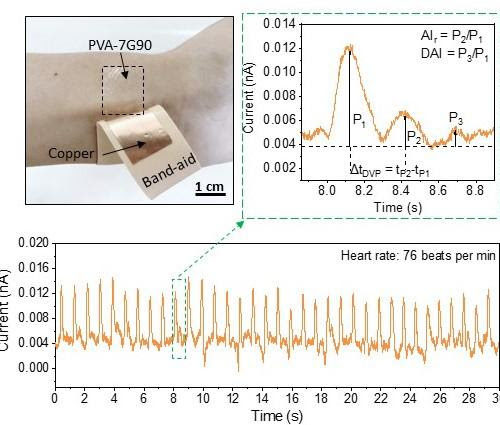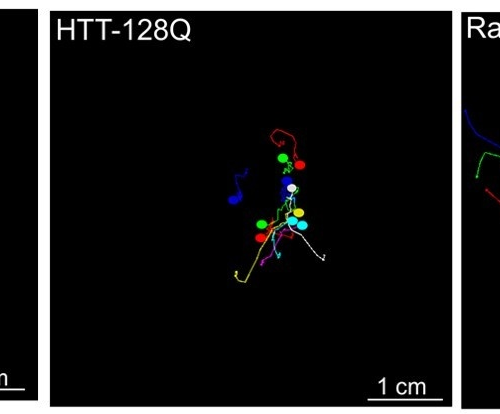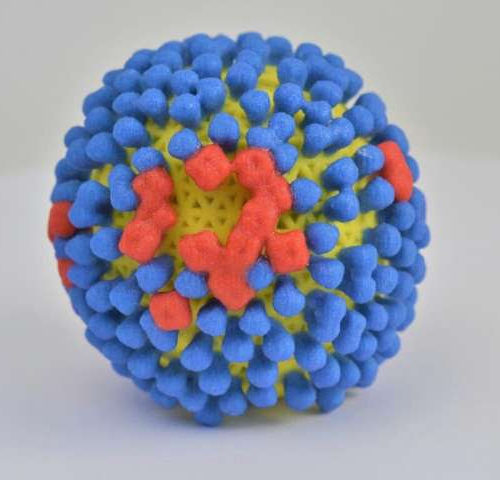by Wellcome Trust Sanger Institute A study has revealed that tumors can evade the immune system by telling immune cells to produce immunosuppressive steroids. Researchers from the Wellcome Sanger Institute, Department of Pathology, University of Cambridge, and MRC Cancer Unit, discovered that immune T cells from mouse skin and breast tumors secrete steroids, and that...
Tag: <span>information processing</span>
Rely on gut feeling? New research identifies how second brain in gut communicates
by Flinders University You’re faced with a big decision so your second brain provides what’s normally referred to as “gut instinct,” but how did this sensation reach you before it was too late? The enteric nervous system (ENS) is an extensive network of neurons and transmitters wrapped in and around the human gut with the...
Two distinct circuits drive inhibition in the sensory thalamus of the brain, study finds
by University of Alabama at Birmingham This research offers fundamental insights about sensory thalamic subnetworks and will enable powerful new strategies to probe behavioral and perceptual functions of these distinct circuits. Credit: UAB The thalamus is a “Grand Central Station” for sensory information coming to our brains. Almost every sight, sound, taste and touch we...
New approach simultaneously measures EEG and fMRI connectomes
by Beckman Institute for Advanced Science and Technology Sepideh Sadaghiani is interested in studying the connectivity and functions of brain networks. Credit: The Beckman Institute for Advanced Science and Technology. New research demonstrates how two vastly different methods of measuring brain activity can provide meaningful data on brain networks simultaneously. Functional magnetic resonance imaging and...
Brain thickness and connectivity, not just location, correlate with behavior
by Matt Swayne, Pennsylvania State University New techniques and technologies of big data are helping researchers better understand the brain. In this study, a Penn State team studied data from the Human Connectome Project to better understand the correlations between brain features, such as cortical thickness and connectivity, and various behaviors. Credit: David Shattuck and...
Invention offers new option for monitoring heart health
PURDUE UNIVERSITY A TEAM FROM PURDUE UNIVERSITY DEVELOPED SELF-POWERED WEARABLE TRIBOELECTRIC NANOGENERATORS WITH POLYVINYL ALCOHOL-BASED CONTACT LAYERS FOR MONITORING CARDIOVASCULAR HEALTH.view more CREDIT: WENZHUO WU/PURDUE UNIVERSITY WEST LAFAYETTE, Ind. – An invention may turn one of the most widely used materials for biomedical applications into wearable devices to help monitor heart health. A team from...
Experts strongly recommend varenicline over the patch for adult smokers hoping to quit
ATS publishes new practice guideline on tobacco dependence treatment AMERICAN THORACIC SOCIETY ATS PUBLISHES NEW CLINICAL PRACTICE GUIDELINE ON TREATING TOBACCO DEPENDENCE IN ADULTS. view more CREDIT: ATS July 15, 2020 – Smoking cessation initiatives notwithstanding, along with provocative public health campaigns and clinical guidance, quitting tobacco has remained elusive for many smokers. The American...
Study reveals intricate details about Huntington’s disease protein
by Charlotte Hsu, University at Buffalo Colored lines show the paths of crawling fruit fly larvae. Larvae with a mutant form of the human huntingtin protein that causes Huntington’s disease crawled poorly (center) compared with normal larvae (left). But when larvae carrying the Huntington’s disease protein also produced extra quantities of the Rab4 protein, crawling...
Blood iron levels could be key to slowing ageing, gene study shows
UNIVERSITY OF EDINBURGH Genes linked to ageing that could help explain why some people age at different rates to others have been identified by scientists. The international study using genetic data from more than a million people suggests that maintaining healthy levels of iron in the blood could be a key to ageing better and...
Fast-spreading mutation helps common flu subtype escape immune response
by Johns Hopkins University Bloomberg School of Public Health Strains of a common subtype of influenza virus, H3N2, have almost universally acquired a mutation that effectively blocks antibodies from binding to a key viral protein, according to a study from researchers at Johns Hopkins Bloomberg School of Public Health. The results have implications for flu...









